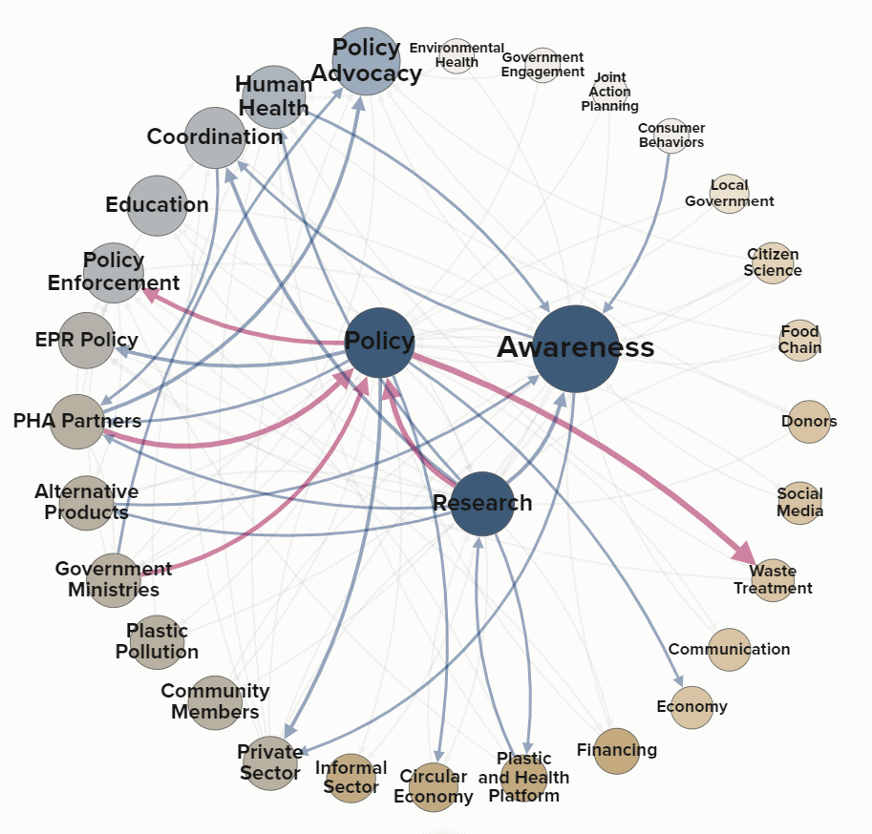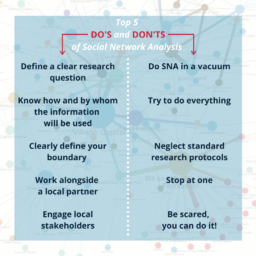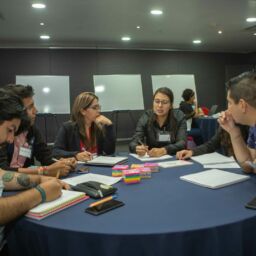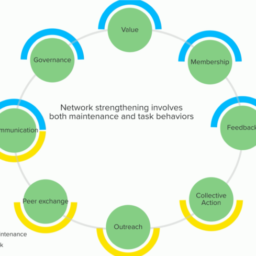Vietnam is consistently listed as one of the top five plastic waste polluters of the world’s oceans, discharging 0.28 – 0.73 million tons annually. GreenHub, a Vietnamese Civil Society Organization, is implementing the USAID-funded Local Solutions for Plastic Pollution (LSPP) activity (2020-2023) which is working to reduce plastic pollution as the key human environmental health challenge in Vietnam by building collective action from the ground up and strengthening and uniting networks, communities, and individuals at the local and national level.
GreenHub engaged LINC to support the Plastic and Health Action (PHA) Partnership network by providing training, coaching, and technical support in several areas, including:
- Training on Systems Thinking (March/April 2021)
The training on Systems Thinking was delivered to 25 participants, including GreenHub staff and other Local Works implementing partners, over a six-week period. The modules were developed in close collaboration with GreenHub and were designed to raise participants’ awareness of how to use systems thinking to understand the complex environment of plastic pollution and the multiple variables required to address it. Modules focused on:
- Key concepts and principles of systems thinking and complexity.
- Understanding how complex problems require different actions than more traditional approaches.
- Practicing building a Causal Loop Diagram to understand complex development problems.
- Learning how to design and conduct a Network Analysis of the relationships among stakeholders of a complex development problem.
- Causal Loop Diagramming Workshop (November 2022)

The four-day Systems Mapping workshop was conducted with members of the PHA network in Hanoi, Vietnam was designed to identify a range of factors and interconnections that drive central outcomes within the health, environment, policy, and plastic value chain ecosystems of Vietnam and their effects on rural, urban, and protected areas.
The outputs from these workshops included:
- Systems map of key themes and factors driving the plastic pollution ecosystem (e.g., awareness, policy, research)
- Systems map analysis to identify potential leverage points.
- Recommendations for an action plan to engage PHA partners and improve the network’s outcome.
3. Social Network Analysis (SNA) (November/December 2022)

The objective of conducting the SNA was to provide a deeper understanding of the PHA network by identifying areas of the network that could be strengthened for more effective implementation. LINC facilitated a quantitative survey targeting members of the PHA network to explore the existing relationships withinithe network.
The results of the SNA are being used to identify sub-groups of closely connected organizations within the overall network, enhance network cohesion, and develop a strategy to prioritize and engage the most influential actors in the network, according to the network’s needs. The results will further enable PHA to identify which network relationships need to be strengthened and how to use the network’s most engaged actors to enhance network ties as well as network cohesion and health.
Overall, LINC’s support helped GreenHub understand the complexity of the plastic pollution challenge in Vietnam, identify actionable priorities and leverage points that clearly align with PHA’s mission, and visualize factors that may either limit or enhance the achievement of desired outcomes as far as reducing the adverse effects of plastic pollution.
LINC’s support also enabled GreenHub to articulate short-term goals and focus areas, and to identify ways of building better connections with stakeholders in the PHA network. Each of these activities provided GreenHub with the tools to strategically engage network members for enhanced outcomes and more sustainable impact.
This blog was authored by Carolyne Njihia and Stephanie Lacouture.



